Part 1 of the series can be found here
Part 2 of the series can be found here
Part 3 of the series can be found here
Part 4 of the series can be found here
Part 5 of the series can be found here
Part 6 of the series can be found here
Part 7 of the series can be found here
Veda Vyasa is Bhagavan’s jnanavatara. He gave us the Mahabharata out of his compassion.
We have learned tenets, proverbs and other good pieces of advice when we were children. We still need guidance as adults. Vidura Neeti is a text that gives us this guidance.
In the previous lecture, we had seen Vidura go numerical and group advices in twos, threes, up to sixes.
Seven
Seven Ways by Which a King Loses His Way
- Company of women. Will come back to haunt him.
- Gambling
- Hunting
- Alcohol
- Harshness in words. Including swearing. (Krishna mentions Mardavam, gentleness in countenance and words, as one of the 25 Daiva qualities in the 16th chapter of the Gita)
- Giving out harsh punishments (Of course, whenever appropriate, a king should give out hard punishments as a deterrent. A bloodthirsty tendency to be harsh is what is criticised here, especially when leniency can do the job)
- Running his kingdom at a loss. (If economic welfare is not achieved, the king is really not doing his job well, is he?)
Eight
Eight Ways by Which a Person Insults Brahmanas and Walks Towards Ruin
These 8 ways by which a person insults Brahmana is an indication of their destruction, says Vidura.
- He doesn’t like brahmanas
- He is not liked by brahmanas
- He usurps the belongings of brahmanas
To illustrate this point, there is a ritual in the 11th day death ceremony called Rishabotsarjanam. This ritual offers a prayer to Nandi. As a part of this ritual, a cow is asked to go and eat grass. Mantras are recited to tell the cow “Make sure you don’t eat grass that belongs to Brahmanas”. Can a cow discern which grass belongs to a Brahmana? But the spirit is to not seize the belongings of Brahmanas. - He torments and tortures brahmanas
- Listening intently to others gossiping about brahmanas
- Not liking the praise of brahmanas
- When brahmanas are to be praised, not praising them
- Being jealous of brahmanas
Eight Joys A Person Experiences
- Reconnecting with a childhood friend after a long time
- An unexpected windfall or fortune
- Your cute child hugging you
- Intimacy with one’s spouse
- Conversation with friends at a moment of leisure where there is no stress
- When you are praised in front of your relatives
- When you get what you desire
- When you are felicitated in public
These Eight Things Brighten a Person
- Intelligence
- Birth in a good family
- Sense-control (Dama)
- Educational qualifications
- Facing life courageously
- Talking less.
So much so that grammarians rejoice when a syllable is reduced! Sutras illustrate this point – they contain potent power in but a few words. - Charity as per a person’s strength
- Gratitude. A person who practices gratitude will excel and emerge victorious.
Nine
Vidura uses the metaphor of a house. The body is referred to as a house.
This house has 9 gates – 2 ears, 2 eyes, 2 nostrils, one mouth, and the two organs of excretion.
This house has 3 pillars – the vata nadi, the pitta nadi, the kapha nadi. Ayurveda diagnoses a person just by examining their nadis.
The house has 5 witnesses. The jnanendriyas – the organs of knowledge – eyes which perceive stimuli, ears which take in sound, nose which presides over the sense of smell, tongue which tastes, and skin which feels.
This body is presided by the soul. Sankara Rama Dikshitar distinguished between the Kshetra, Khetrajna and the Kshetrajna Adhishtitham.
Kshetra – body
Kshetrajna – the jiva, the soul
Kshetrajna Adhishtitam – Paramatma, the Supreme Self
One who realizes the Self is wise – a kavi, a vidvan, a pandita.
Ten
We see people in these ten states. These people don’t know dharma. We should ensure we don’t get into these states at any cost.
- Mattah – Intoxicated
- Pramattah – Careless
- Unmattah – Mad
- Shranthah – Tired
- Kruddhah – Angry
- Bubhukshutham – Hungry
Sankara Rama Dikshitar mentioned that Jnanananda Swami, whenever someone was angry, would enquire if they had eaten and if they were hungry. Dikshitar confirmed this from his personal experiences – hungry people get cranky. Former US President Bill Clinton was famous for asking antsy people if they had eaten, if they were hungry, and if they were, he would arrange for them to eat. - Tvaramana – A person who acts in haste
- Labdha – Greedy
- Bheetah – Coward
- Kaami – A person who desires and lusts indiscriminately
Vidhura’s Eclectic Gems of Wisdom
- Attire wins over a Sabha (a formal gathering). Cow wins over a tasty tongue (the cow’s milk, curd and ghee delight the palate). Distance is won over by a vehicle. However, all of these (Sabha, tasty tongue, distance) can be won over by a good person, says Vidura.
- People in lowest rung fear joblessness. People in the middle rung fear death. People in the highest rung fear ignominy.
- Q: How do Devas protect us? A: Devas give good thinking to the people they want to protect.
- Conversely, if the Devas want us to fail, they take away our power of discrimination.
- Great men drink their anger. They, too, get angry – every human does – but they don’t let anger overpower them, they drink their anger.
- Just as a honeybee collects honey from the flower without causing harm to the flower, people should earn wealth without affecting others.
- Wise people get life lessons from anywhere and everywhere. Even from the mad man prattling on the streets. It doesn’t matter who said it, the point is what matters.
- Jealousy is a never-ending disease with no medicine.
- The way old age destroys beauty, stubbornness destroys wealth.
- Friendship exists among equals.
- One should eat well in their younger days – appetite declines with age. However, there is no bigger enemy than sleep. If one goes to bed early, 6 hours of sleep is more than sufficient. When one sleeps late, they feel tired even with 9 hours of sleep.
Who is a Bandhu (Friend) for Who?
- Rain is Bandhu for animals. Rains help grass to grow. Eating this, animals survive.
- A good minister is Bandhu for a king. The minister will correct the king’s flaws whenever they surface.
- Husband is Bandhu for a wife.
- Vedas are the Bandhu for a Brahmana.
What Protects What?
- Repetition and practice protects education. (Otherwise, one is prone to forget what they learned)
- Elaborate body-care and shower protects good looks.
- Virtuous actions protect one’s lineage.
These Actions are Equivalent to the Sin of Brahma-Hatya (Killing a Brahmana)
- Setting fire to a person’s house
- Poisoning a person
- Obtaining children via less-than-honest means to attain money
- One who sells the Soma juice
- Gossiping and tattling on others
- Aborting a fetus
- Speaking harsh and angry words
- Making the sound of a crow
- Being the village-priest
- One who slays cattle
- One who slays a person who has sought refuge
- One who insults the Vedas
The Kauravas had done all of the above and more.
Virochana – Sudhanva Argument
Virochana, the son of Prahlad, and Sudhanva, the son of Maharshi Angirasa had an argument. They went to Prahlad to help mediate the argument. Prahlad was in a fix. Should he favour his son, or should he favour the truth?
A hamsa bird happened to come there at that time. Hamsa birds are known for their ability to separate milk from water, metaphorically signifying the ability to discern the good from the bad. Prahlad asked the Hamsa bird for advice.
The Hamsa bird Told Prahlad to give as much wealth as he desired to his son. However, in the dispute, Prahlad had to speak the truth. Prahlad took the advice and settled the argument in favour of Sudhanva.
Vidura’s intention on recounting this story is to urge Dhrtharashtra to be just, and not favour Duryodhana unjustly.
These Come to All Humans. One Should Therefore Not Rejoice or Grieve
- Joy and Sadness
- Appearance and Disappearance
- Creation and Destruction
- Profit and Loss
These repeatedly come to all humans. One should therefore not rejoice on joy, appearance of a conducive object or person or situation, creation of anything, obtaining a profit. On the other side of the coin, one should not grieve when the opposite happens.
Vidura’s Appeal to Dhrtharashtra
Vidura appeals to Dhrtharashtra to help the Pandavas and Kauravas reconcile. They should mutually protect each other. They should be a unit of 105 people. They should function as one unit. They should have the same friends and the same enemies. If anyone attacks one of the 105, the other 104 should have their back.
“Please do this Oh king”, appeals Vidura, “Please make them live long”.
The Six Knives That Cut The Allotted 100 Years for Human Beings
All human beings are allotted a lifespan of 100 years. So say the Vedas. However, we seldom see people live the full 100 years. What gives, asked Dhrtharasthra. Vidura lists six knives that cut the lifespan.
- Excessive pride
- Excessive talking
- Absence of sacrifice (tyaga)
- Excessive anger
- Self-centered living. “Me, my wife, my children, my family … Only these matter to me. Nothing else.”
- Betraying a dear friend
How Should One Discharge Their Duties to Children?
Vidura chimes in with some advice on discharging parental duties.
- Parents should bring up children in a way that the children don’t fall into debt.
- Parents should give their children appropriate education that helps them earn a living.
- Parents should help their child marry well.
- Parents should send their girl child happily to her husband’s house.
- After discharging their duties, the parents should retire from household duties. In the days of the yore, they retired to the forest (Vanaprastha).
The Four Vices Every Person Possesses (Which They Must Win Over)
- Krodha (Anger). Anger must be won over with patience (akrodha).
- Asaadhutva (Badness). Badness must be won over with goodness (sadhutva).
- Lobha (Miserliness). Miserliness must be won over with charitable practices (dana).
- Anrta (Dishonesty). Dishonesty must be won over with Truth (satya)
These four qualities are passed from one life to another via vasanas, every person possesses these vices. The intelligent act is to overcome these four vices. There is a section in the Sama Veda called Setu-Sama, which is very special, that talks about this topic.
Dhrtharasthra has one more question. Vidura brings in an expert to answer this question, Sanatsujata, one of the Sanatkumaras. His answer is called the Sanatsujateeyam, a Vedantic treatise, Adi Sankara has written commentary for this text.
The full discourse (in Tamil) can be found here
Picture credit: Yogesa, CC BY-SA 3.0, via Wikimedia Commons

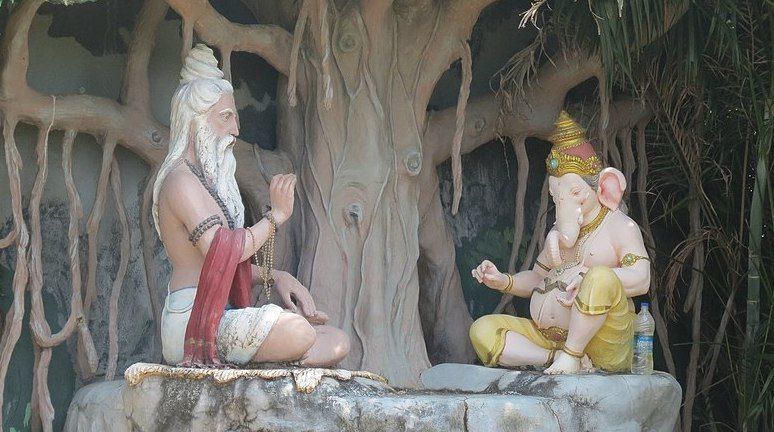

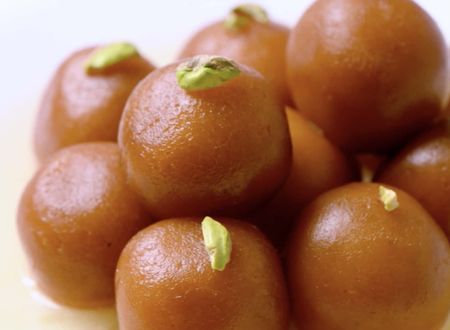
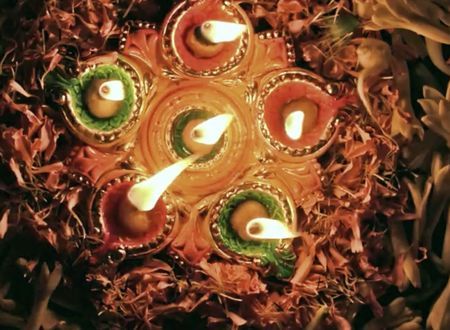
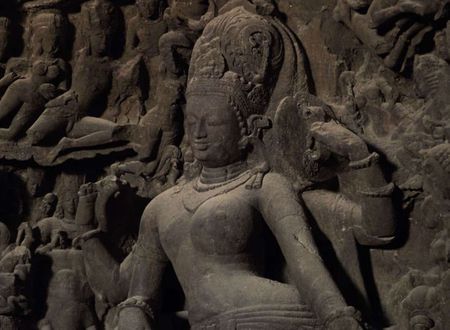
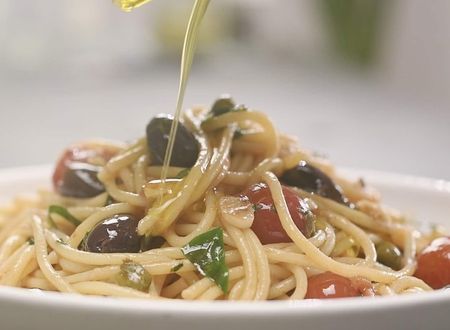


Comments & Discussion
6 COMMENTS
Please login to read members' comments and participate in the discussion.